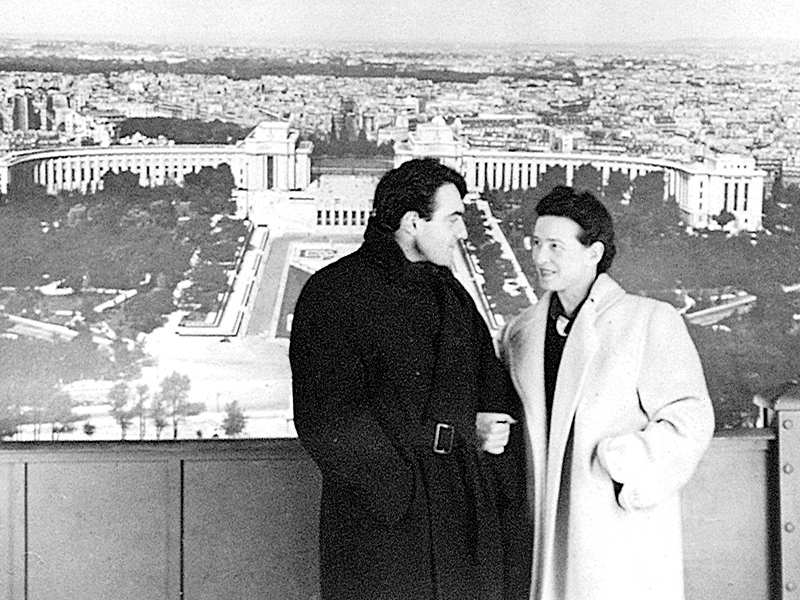After a more than four-decade career making some of the most accomplished documentaries of all time, Claude Lanzmann may finally be heading to the Academy Awards on Feb. 28.
However, if the 90-year-old documentarian behind Shoah does find his way to the Dolby Theatre, it won’t be for one of his own films. Lanzmann is the subject of one of the nominated documentary shorts, directed by Toronto resident Adam Benzine.
“What I hope this [nomination] will do is expose his work to a whole new generation,” Benzine tells The CJN. “Shoah had such an influence on the documentary landscape. It’s such a singular work of cinema.”
The nomination for documentary short subject is a big achievement for Benzine, an arts journalist and first-time filmmaker who arrived in Canada in 2011. Claude Lanzmann: Spectres of the Shoah was a self-financed film that he worked on with a mostly Canadian crew for three years.
Most of the documentary short is an intimate interview with Lanzmann as the director revisits his experience making Shoah, a nearly 10-hour documentary about the Holocaust.
Shoah was groundbreaking, not just for its scope, but also for its lack of archive footage. Lanzmann began working on the film when he was 47, but the gruelling production and editing process took more than 10 years – and almost made him take his own life.
“I was proud of what I achieved,” Lanzmann says in the film about the reception of his 1985 documentary. “But joy – joy is something else.”
Spectres of the Shoah, which runs 40 minutes, also features previously unseen footage taken from 225 hours of material that Lanzmann and his team filmed for Shoah. Benzine got access to this footage through the United States Holocaust Memorial Museum.
Nevertheless, Benzine doesn’t want people to think his film is a mere “making-of,” akin to a DVD special feature. The documentary also looks at other aspects of Lanzmann’s life, including his fighting in the Resistance during World War II.
“It’s about the making of Claude Lanzmann, or perhaps about the unmaking,” Benzine says, “about how the process of doing this work led him to the place where he is now.”
However, getting a giant of non-fiction cinema to sit down for an interview took a few tries before Lanzmann accepted.
“It was a difficult interview in places,” Benzine says. “There were some things he didn’t want to talk about, some things he was reluctant to talk about. Making [Shoah] really wore him out.”
The Oscar-nominated film also aired on CBC’s documentary channel yesterday (Jan. 27), as part of International Holocaust Remembrance Day.

As for receiving the nomination, Benzine calls the experience “surreal,” adding that it is difficult for short films to receive any notice.
Meanwhile, he says he is especially delighted for his crew, many of whom deferred their salaries to get the film made.
“I’m not sure if I could have made this film if I were not in Canada,” he says. “I found it easy and enjoyable to make friends and collaborators in [Toronto] – my cinematographer, my editor, my researcher, my sound recordist.”
READ: TWO HOLOCAUST-THEMED FILMS MAKE THE OSCAR CUT
Benzine will compete against another Toronto resident in that category: director Sharmeen Obaid-Chinoy, nominated for A Girl in the River: The Price of Forgiveness.
Despite Lanzmann’s stature as a director, he never received an Oscar nomination. Benzine says the academy’s recognition this year could have been partly to make amends to a filmmaker they have ignored.
Although he isn’t certain about whether Lanzmann will come to the Oscars, Benzine has reached out to the filmmaker and has high hopes.
“I’m sure there are a lot of people in Hollywood who want to shake his hand,” Benzine says.
